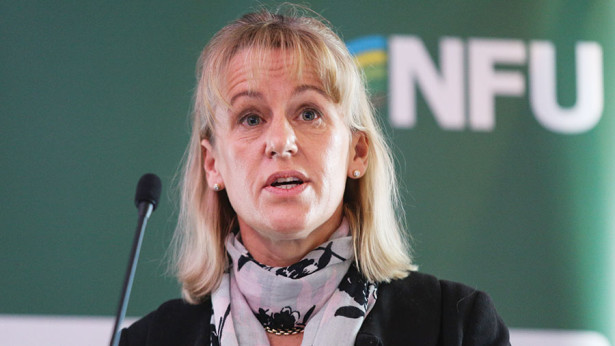
Agricultural sectors working together to offer affordable British produce can put up a defence against cheap imported food post-Brexit, according to NFU deputy president Minette Batters.
Speaking to the Westminster Food and Nutrition Forum today (8 March), Mrs Batters said more retailers and supermarkets should fall under the scope of the Groceries Supply Code of Practice to ensure fairer trading.
Proposals by senior politicians to increase imports of cheap food from countries with lower animal health standards are a cause for concern, farmers have said.
The Farmers' Union of Wales (FUW) said such policies would have a detrimental impact on British agriculture and rural communities. They said there was 'significant concern' regarding dairy, beef and lamb sectors post-Brexit.
Even Welsh rural affairs secretary Lesley Griffiths told Assembly Members that a huge influx of imported lamb 'would absolutely destroy' the industry.
Compulsory codes
Minette Batters said that if agricultural sectors work together and collaboratively with their supply chains to offer quality British Red Tractor food at an affordable price, this will put up a 'strong defence' against cheap imported food.
She said: "We have seen our members faced with short notice price and specification changes and unreasonable contract terms as well as members suppling retail with ornamental products required to pay to stay, unreasonable customer complaint charges and a lack of commitment on volumes.
"We want to see more retailers, food service and food manufacturers’ fall under the scope of GSCOP to ensure the principles of fair trading are inherent across the supply chain.
"We also want to see the principles of the agri-voluntary codes made compulsory and over seen by the GCA to give them more teeth. This would drive a more collaborative approach in UK supply chains.
"This should include the Ornamentals sector - an industry worth £2 billion to the UK economy.
"The opportunity we have is a policy tailor-made for our country and our sector.
"The ripple effect of this policy will be felt right through the food supply chain ending with the public – the people eating the food we produce. But we can only achieve this through collaboration, be that at Government level, UK food industry level, along the supply chain and at farm level."
